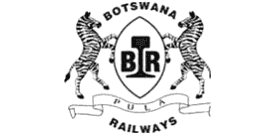 Botswana Railways looking to advance its position in regional connectivity
Botswana Railways looking to advance its position in regional connectivity
Speaking at the African Union Commission (AUC)’s Department of Infrastructure and Energy (IED) Continental Workshop on the Implementation of the Africa Integrated Railways Network (AIRN), held from 7th to 10th May 2024 in Dar es Salaam, Tanzania, Semabale Tladi, Director of Business Development at Botswana Railways, highlighted the pivotal role that the Trans-Kalahari Railway Project (TKR) will play for Botswana Railways. The TKR is currently under evaluation, and a Request for Information (RFI) for a consultant to assist in the evaluation of the bidders in the final stage has also been issued.
Once appointed, the successful contractor will construct approximately 1,500 kilometres of rail from Botswana into Namibia, all the way to the port at Walvis Bay. It is estimated that the Trans-Kalahari Railway Project will cost roughly $14 billion for construction. “It’s a significant amount of money and unfortunately, both our governments cannot raise this amount. That’s why both governments decided it has to be a PPP (Public-Private Partnership) arrangement,” said Semabale Tladi.
In addition, Botswana Railways is also undertaking the Mmamabula-Lephalale rail line, which connects Botswana and South Africa. This line is primarily intended for transporting minerals from Botswana to the Port of Richards Bay. The rail line is expected to be operational within the next 2-3 years. Combined with the Trans-Kalahari Railway, this new line will create a network that connects South Africa through Botswana to Walvis Bay. Furthermore, it provides Botswana Railways with an alternative to the Durban port. “This is important for supply security. If anything happens in Richards Bay, we should still be able to get our goods through Walvis Bay. It is very important to have an alternative port through which our goods can come in,” noted Semabale Tladi.
Historically, Botswana Railways has only had one main rail line in the eastern part of the country, connecting to South Africa and Zimbabwe. Traditionally, this eastern railway line had about three branch lines connecting the main line to various mines. Botswana Railways is now aggressively moving forward, which is why it is developing the Trans-Kalahari Railway, a new rail line, and the Mmamabula-Lephalale rail line, another new rail project. Additionally, Botswana Railways is looking at directly connecting to Zambia with the Mosetse-Livingstone rail line.
The Kazungula Bridge
One of the iconic infrastructure projects in Botswana is the Kazungula Bridge, often referred to as one of the wonders of Africa. The bridge includes a rail component, but currently, no rail lines connect to it. Both Zambia and Botswana have signed a Sponsorship Agreement to establish a rail line connecting Zambia to Botswana via the bridge.
Botswana Railways is looking at establishing three key connections: Botswana-South Africa, Botswana-Namibia, and Botswana-Zambia. Due to its location, Botswana is sometimes called landlocked or landlinked. Regardless, it is essential to facilitate trade by ensuring links to all neighbouring countries. Therefore, Botswana Railways is aggressively pursuing these projects to support inter-regional trade. “These three rail lines are all progressing simultaneously because postponing may result in indefinite delays. Now is the best time to get things moving; otherwise, tomorrow may never come,” said Semabale Tladi.
Botswana Passenger Rail
During COVID-19, Botswana Railways suspended its passenger train service due to sustainability issues. There is now pressure from the government to bring back the passenger train as part of urban mobility efforts. An Expression of Interest has been issued to test the market and determine if the private sector is interested in partnering to re-establish the passenger train and improve urban mobility. It is hoped that the endeavour will succeed, allowing for a significant contribution to urban mobility in the country. “There is great interest in learning how others manage to run a passenger train sustainably, as this has always been a challenge,” concluded Semabale Tladi.
